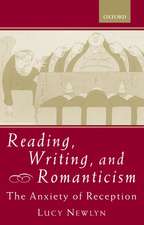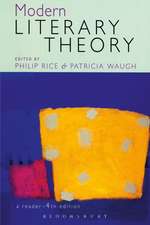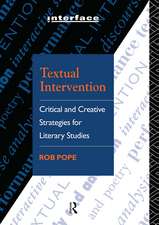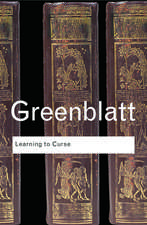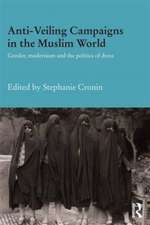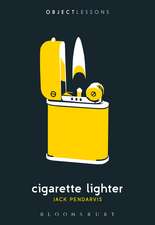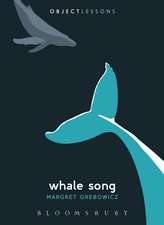Veil: Object Lessons
Autor Rafia Zakariaen Limba Engleză Paperback – 6 sep 2017
Din seria Object Lessons
- 39%
 Preț: 47.19 lei
Preț: 47.19 lei - 40%
 Preț: 46.62 lei
Preț: 46.62 lei - 39%
 Preț: 46.74 lei
Preț: 46.74 lei - 39%
 Preț: 47.62 lei
Preț: 47.62 lei - 39%
 Preț: 47.19 lei
Preț: 47.19 lei - 39%
 Preț: 47.62 lei
Preț: 47.62 lei - 39%
 Preț: 47.62 lei
Preț: 47.62 lei - 39%
 Preț: 47.19 lei
Preț: 47.19 lei - 39%
 Preț: 47.62 lei
Preț: 47.62 lei - 39%
 Preț: 46.74 lei
Preț: 46.74 lei - 39%
 Preț: 47.19 lei
Preț: 47.19 lei - 39%
 Preț: 47.19 lei
Preț: 47.19 lei - 42%
 Preț: 47.19 lei
Preț: 47.19 lei - 39%
 Preț: 46.74 lei
Preț: 46.74 lei - 39%
 Preț: 46.74 lei
Preț: 46.74 lei - 39%
 Preț: 47.19 lei
Preț: 47.19 lei - 39%
 Preț: 47.62 lei
Preț: 47.62 lei - 39%
 Preț: 47.62 lei
Preț: 47.62 lei - 39%
 Preț: 47.62 lei
Preț: 47.62 lei - 39%
 Preț: 46.74 lei
Preț: 46.74 lei - 39%
 Preț: 46.74 lei
Preț: 46.74 lei - 39%
 Preț: 46.74 lei
Preț: 46.74 lei - 39%
 Preț: 47.62 lei
Preț: 47.62 lei - 39%
 Preț: 47.19 lei
Preț: 47.19 lei - 39%
 Preț: 47.19 lei
Preț: 47.19 lei - 39%
 Preț: 46.74 lei
Preț: 46.74 lei - 39%
 Preț: 47.62 lei
Preț: 47.62 lei - 39%
 Preț: 46.74 lei
Preț: 46.74 lei - 39%
 Preț: 46.74 lei
Preț: 46.74 lei - 40%
 Preț: 46.29 lei
Preț: 46.29 lei - 39%
 Preț: 46.74 lei
Preț: 46.74 lei - 39%
 Preț: 47.19 lei
Preț: 47.19 lei - 39%
 Preț: 47.62 lei
Preț: 47.62 lei - 39%
 Preț: 47.19 lei
Preț: 47.19 lei - 40%
 Preț: 45.85 lei
Preț: 45.85 lei - 39%
 Preț: 47.62 lei
Preț: 47.62 lei - 39%
 Preț: 46.74 lei
Preț: 46.74 lei - 39%
 Preț: 47.37 lei
Preț: 47.37 lei - 39%
 Preț: 47.19 lei
Preț: 47.19 lei - 43%
 Preț: 46.74 lei
Preț: 46.74 lei - 39%
 Preț: 47.62 lei
Preț: 47.62 lei - 39%
 Preț: 46.74 lei
Preț: 46.74 lei - 39%
 Preț: 47.62 lei
Preț: 47.62 lei - 39%
 Preț: 47.25 lei
Preț: 47.25 lei - 39%
 Preț: 46.74 lei
Preț: 46.74 lei - 39%
 Preț: 47.53 lei
Preț: 47.53 lei - 39%
 Preț: 46.74 lei
Preț: 46.74 lei - 39%
 Preț: 47.62 lei
Preț: 47.62 lei - 39%
 Preț: 47.19 lei
Preț: 47.19 lei
Preț: 45.85 lei
Preț vechi: 76.66 lei
-40% Nou
8.77€ • 9.18$ • 7.26£
Carte disponibilă
Livrare economică 15-29 martie
Livrare express 01-07 martie pentru 44.55 lei
Specificații
ISBN-10: 150132277X
Pagini: 136
Dimensiuni: 121 x 165 x 14 mm
Greutate: 0.09 kg
Editura: Bloomsbury Publishing
Colecția Bloomsbury Academic
Seria Object Lessons
Locul publicării:New York, United States
Caracteristici
Notă biografică
Rafia Zakaria is an attorney, political philosopher, and a columnist for DAWN Pakistan. She is a frequent contributor to the Los Angeles Review of Books, The Nation, Aeon, Guernica, the New York Times, among other publications. Her book The Upstairs Wife: An Intimate History of Pakistan (2015) received acclaim in the New York Times, NPR, Ms. Magazine. Christian Science Monitor,The Boston Globe, The Toronto Star, Bustle, Hindustan Times, DNA India, Indian Express, Calcutta Statesman, Dissent and The Nation.
Cuprins
Introduction1. Submission 2. Purity, Necessity Unity3. Rebellion4. Feminism5. Submissive or SubmersiveEpilogueIndex
Recenzii
An intellectually bracing, beautifully written exploration of an item of clothing all too freighted with meaning.
I admired Rafia Zakaria's Veil months even before I read it . Her engaging prose is just what I hoped to find inside this little book, which is composed of short vignettes on the veil rather than a sustained philosophical treaty.
Slim but formidable.
Descriere
Object Lessons is a series of short, beautifully designed books about the hidden lives of ordinary things. The veil can be an instrument of feminist empowerment, and veiled anonymity can confer power to women. Starting from her own marriage ceremony at which she first wore a full veil, Rafia Zakaria examines how veils do more than they get credit for. Part memoir and part philosophical investigation, Veil questions that what is seen is always good and free, and that what is veiled can only signal servility and subterfuge. From personal encounters with the veil in France (where it is banned) to Iran (where it is compulsory), Zakaria shows how the garment's reputation as a pre-modern relic is fraught and up for grabs. The veil is an object in constant transformation, whose myriad meanings challenge the absolute truths of patriarchy. Object Lessons is published in partnership with an essay series in The Atlantic.

